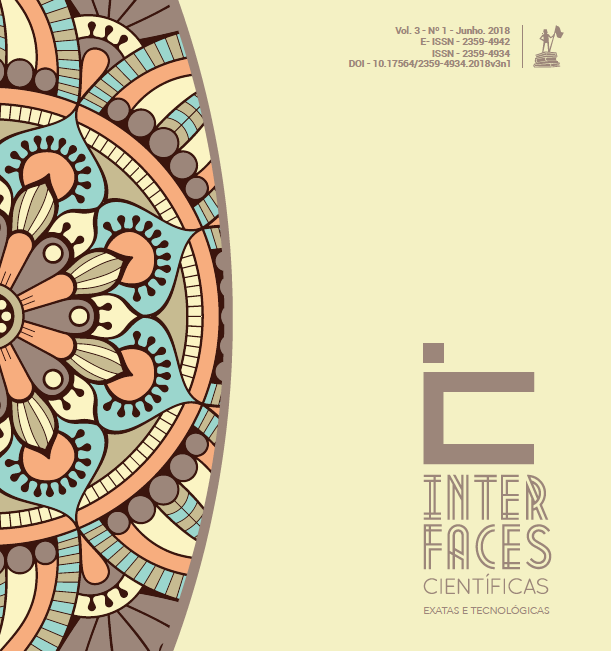AN INFORMATION RETRIEVAL APPROACH FOR ASSISTING USERS IN SOFTWARE ENGINEERING PROCESSES
DOI:
https://doi.org/10.17564/2359-4942.2018v3n1p9-18Palavras-chave:
Information Retrieval, Software Engineering, CMMI, Tool Support, Software Processes.Resumo
Documents written in natural language constitute a major part of the artifacts produced during the software engineering life cycle. There is a growing interest in creating tools that can assist users in all phases of the software life cycle. The assistance requires techniques that go beyond traditional static and dynamic analysis. An example of such a technique is the application of information retrieval (IR), which exploits information found in documents of a software engineering process. The increased availability of data created as part of the software development process allows managers to apply novel analysis techniques on the data and use the results to guide the project's stakeholders. These data are then used to predict defects, gather insight into a project's life-cycle, and other tasks. This work proposes an IR approach to assist users in software engineering processes according their profile. The approach consists in recommending them related documents to a retrieved one in order to users understand and follow the process in a correct way. Furthermore, the assistance concentrates on legacy systems in which engineers must acquire knowledge generated by others. Implementation of the approach and an overview of evaluation are also summarized.Downloads
Referências
Fostering collaborative learning in second life: Metaphors and affordances. Computers and Education, 2010.
ANTONIOL, Giuliano; CANFORA, Gerardo; CASAZZA, Gerardo; DE LUCIA, Andrea. Information retrieval models for recovering traceability links between code and documentation. In Proceedings of International Conference on Software Maintenance, San Jose, CA, USA, 2000.
CRASSO, Marco; ZUNINO, Alejandro; MORENO, Leonardo; CAMPO, Marcelo. JEETuningExpert: A software assistant for improving java enterprise edition application performance. Expert Systems with Applications, 2009.
HAYES, Jane Huffman; DEKHTYAR, Alex; OSBORNE, James. Improving requirements tracing via information retrieval. IEEE Computer Society, 2003.
LIKERT, Rensis. A technique for the measurement of attitudes. Arch Psychol, 22, 1932.
LINDVALL, Mikael; SANDAHL, Kristian. How well do experienced software developers predict software change? Systems and Software, 1998.
SCHIAFFINO, Silvia; AMANDI, Analia. Intelligent user profiling. In Max Bramer, editor, Artificial intelligence, chapter Intelligent user profiling. Springer-Verlag, Berlin, Heidelberg, 2009.
SCHWARZ, Hannes; EBERT, Jürgen; WINTER, Andreas. Graph-based traceability: a comprehensive approach. Software and Systems Modeling, 2010.
WITTE, René; LI, Qiangqiang; ZHANG, Yonggang; RILLING, Juergen. Text mining and software engineering: an integrated source code and document analysis approach. IET Software, 2008.
AMALFITANO, Domenico; DE SIMONE, Vincenzo; FASOLINO, Anna Rita Fasolino; SCALA, Stefano. Improving traceability management through tool integration: an experience in the automotive domain. In Proceedings of the 2017 International Conference on Software and System Process. ACM, New York, NY, USA, 2017.
FONSECA, Vinícius Soares; PIERINI BARCELLOS, Monalessa; DE ALMEIDA FALBO, Ricardo. An ontology-based approach for integrating tools supporting the software measurement process. Science of Computer Programming, 2017.
Downloads
Publicado
Como Citar
Edição
Seção
Licença
Oferece acesso livre e imediato ao seu conteúdo, seguindo o princípio de que disponibilizar gratuitamente o conhecimento científico contribui para a democratização do saber. Assume-se que, ao submeter os originais os autores cedem os direitos de publicação para a revista. O autor(a) reconhece esta como detentor(a) do direito autoral e ele autoriza seu livre uso pelos leitores, podendo ser, além de lido, baixado, copiado, distribuído e impresso, desde quando citada a fonte.
Atribuição-CompartilhaIgual CC BY-SA This license lets others remix, adapt, and build upon your work even for commercial purposes, as long as they credit you and license their new creations under the identical terms. This license is often compared to “copyleft” free and open source software licenses. All new works based on yours will carry the same license, so any derivatives will also allow commercial use. This is the license used by Wikipedia, and is recommended for materials that would benefit from incorporating content from Wikipedia and similarly licensed projects.

